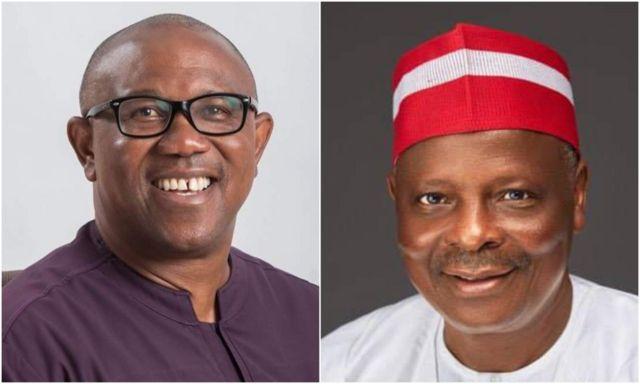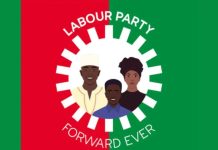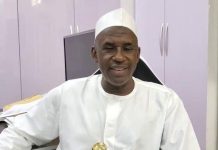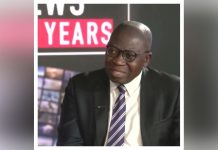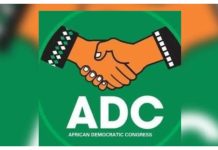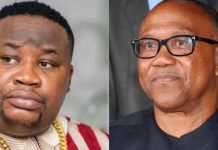By Abba Hamisu Sani
Africa-Press – Nigeria. The formation of alliances is one of the permanent features of the politics in most multi-ethnic and religious Countries.
This is because, more often than not, ethnicity and competition for the control of the structural frame and system always prevent the existence of nation-wide or country-wide political associations and the emergence of nationally acknowledged political leaders. Yet, in order to guard against the domination of the minorities by the majorities the constitutions of most federal and non-federal multi-ethnic states often stipulate that the central governments of such states must be formed by the parties or candidates with the overall majority of either parliamentary seats or total votes cast in general elections. Since this is always difficult to achieve, particularly in Nigeria where appeals to ethnic sentiments are almost always a predominant issue in electioneering campaigns, the formation of alliance-governments become inevitable. During 1959 election no signle party was able to win the majority.
The NPC then decided to combine with the NCNC to form the national government.
This brought Abubakar Tafawa Balewa as Prime Minister and Nnamdi Azikiwe as the Governor-General on independence in 1960.
Nnamdi Azikiwe became the president of Nigeria in 1963 after Nigeria became a republic, while Tafawa Balewa maintained his position as the Prime Minister. The census conducted in 1963 was thought to favour the Hausa-Fulani more than the rest of Nigeria and this dissatisfied the Igbos, leading to the splitting of the NCNC with the NPC.
The NCNC then joined with a faction of the AG. This group was led by Obafemi Awolowo and they formed a new political party named United Progressive Grand Alliance (UPGA). The NPC on the other hand joined with the remaining faction of the AG led by Akintola to form yet another political party, the Nigerian National Democratic Party (NNDP).
The Nigeria Civil War came in 167 and ended in January 1970. This was followed by a coup de at, which led to the removal of General Gowon in 1975 and the assumption of General Murtala Mohammed to the position of president. Murtala Mohamed was killed in an unsuccessful Buka Dimka coup de ta in February 1976 and Olusegun Obasanjo took over from him. General Obasanjo handed over power to Shehu Shagari, in 1979.
Another coup took place on December 31, 1983, which brought in Muhammadu Buhari as president. Yet another coup took place on August 2, 1985 and Ibrahim Babangida took over as president. Babangida made new constitution and planned returning the country to civilian rule.
Elections actually held in 1993 between Social Democratic Party (SDP) and National Republican Congress (NRC). Moshood Abiola of the SDP won the election that was Considered as the fairest and freest election ever conducted in Nigeria.
Nigeria finally returned to civilian rule after another years of military rule and General Obasanjo came to power under the People’s Democratic Party on May 29, 1999. He handed over to late Umaru Musa Yar’Adua of the same political party after defeating the oppositions Action Congress (AC) and Congress for Progressive Change (CPC).
The AC won most of the states in the Southwest, while the ANPP won most of the states in the Northern part of the country.
The PDP swill won the majority despite this strong show of opposition. Yet another political party, the All Progressive Grand Alliance (APGA) participated in the election but was only able to win a couple of states in the south eastern part of the country.
However, Umaru Musa Yar’ Adua could not complete his first term in office. His vice, Good luck Jonathan took over and he was sworn in a second time in 2011 after winning convincingly at the polls.
Things went down the hill for Jonathan and he lost his popularity in many parts of the country, except in the southeastern and south-southern parts of the country.
This led to the near-breakup of the PDP due to the exit of many of the political bigwigs of the party to the opposition parties.
In preparation for the 2015 election, the Action Congress formed an alliance with the Congress for Progressive Change (CPC) and they were joined by a faction of the PDP and APGA.
They named the newly formed political party as All progressive Congress (APC).
This political party presented Muhammadu Buhari, as flag bearer after he defeated Rabiu Musa Kwankwaso and Atiku Abubakar in the primaries.
The exodus of many members from the PDP to other political parties, especially the APC, led to the shake in the stronghold of the then ruling party. Some aggrieved PDP governors formed a faction of the political party and called it the nPDP.
The nPDP were made up of 7 state governors; 5 of them later defected to the newly formed APC.
To make things worse for the PDP, some of its leaders started exiting the party and joining their lot with the new APC. Notable among them is Olusegun Obasanjo, who many saw as the main force behind the PDP.
Trouble started brewing when Obasanjo resigned as the chairman of the PDP’s Board of Trustees (BOT).
Inability of the then president, Goodluck Jonathan to settle the rift led to the outright defection of Obasanjo to the APC. At that point, many concluded that Jonathan would end up being defeated at the polls.
Muhamadu Buhari of the APC was able to defeat the Goodluck Jonathan of the PDP at the polls and Muhamadu Buhari was sworn in as President on May 29, 2015.
The APC is presently the ruling party, while the PDP is the main opposition party.
Other political parties that participated in the 2015 general elections aside the APC and PDP were the Labour Party, the National Conscience Party, the Hope Democratic Party, the United Progressive Party.
The Allied Congress Party of Nigeria, the United Democratic Party, the All Progressive Grand Alliance, the African Democratic Congress, the Kowa Party, the Alliance for Democracy and the Action Alliance. Among all of them, only the All Progressive Grand Alliance (APGA) could boast of winning election
History of Political Parties allience in Nigeris
During the 1959 election which was the first National election conducted in the the pre Independence Period , no single party was able to win the majority.
The NPC then decided to combine with the NCNC to form the national government.
This brought Abubakar Tafawa Balewa as Prime Minister and Chief Nnamdi Azikiwe as the Governor-General on independence in 1960.
Nnamdi Azikiwe became the president of Nigeria in 1963 after Nigeria became a republic.
While Tafawa Balewa maintained his position as the Prime Minister. The census conducted in 1963 was thought to favour the Hausa-Fulani more than the rest of Nigeria and this dissatisfied the Igbos, leading to the splitting of the NCNC with the NPC.
The NCNC then joined with a faction of the AG. This group was led by Obafemi Awolowo and they formed a new political party named United Progressive Grand Alliance (UPGA).
The NPC on the other hand joined with the remaining faction of the AG led by Akintola to form yet another political party, the Nigerian National Democratic Party (NNDP).
There was no visible Political Parties allience during 1979 when NPN won the the Presidential election and in 1993 elections during SDP and NRC as two Political Parties existed.
Nigeria finally returned to civilian rule in 1999 with PDP, APP and AD as major Political Parties.
At that time PDP was the strongest among all the Parties as ,it Contest alone with Chief Olusegun Obasanjo as Presidential Candidate and Atiku Abubakar as his Deputy.
APP and AD formed alliance with the Olu Falaye as Presidential Candidate and Ummaru Shinkafi as running mate.
PDP emerged winner of the Presidential Seat and majority of the states.
While APP won in some northern States also AD Parts South
Western States such as Lagos.
The recent alliance is between Action Congress (AC) and Congress for Progressive Change (CPC), faction of PDP and APGA.
This move Prove successful as it see’s the emergency of APC under which national Government is formed with Muhammadu Buhari as President for two successive terms 2015- 2019 – to date.
Coalition ahead of 2023 Election
less than 12 months to the 2023 elections Nigerian Political Parties have concluded their Primary elections , the next move between parties is alliance and Coalition.
The major topics of discussion by Political analysts and Media , is the possibility of alliance between NNPP led by former Kano State Governor Rabi’u Musa Kwankwaso and it’s Presidential Candidate and Labour Party under which former Amambara State Governor and Vice Presidential Candidate under PDP during 2019 Peter Obi is Contesting the Presidential Position.
The joint panel set up by the Labour Party and the New Nigeria People’s Party to work out an alliance between Rabiu Kwankwaso and Mr Peter Obi has submitted its report for consideration, and findings by Saturday 25 June 2022 according the NNPP National Secretariats.
Kwankwaso, have a strong followership in the North with his Kwankwasiyya movement,
While Obi is having an increasing support base among youths in the southern part of the country and the social media.
While it is no longer possible for political parties to merge, in line with Section 81 (2) of the Electoral Act, both presidential candidates are working on a joint ticket with the hope of defeating the ruling All Progressives Congress, the opposition Peoples Democratic Party and others in the February 25, 2023 presidential election.
The Section 81 (2) reads, “Political parties intending to merge shall each give to the commission nine months’ notice of their intention to do so before a general election.” Already, the 2023 general elections will commence on February 25, which is less than nine months away.
Hisham Habib is who the former Chairman of NNPP ,Kano State Chapter and a Journalist with vast experience expressed optimism that the alliance between Kwankwaso and Obi will be achieved as the two Presidential Candidates have so many things in Common.
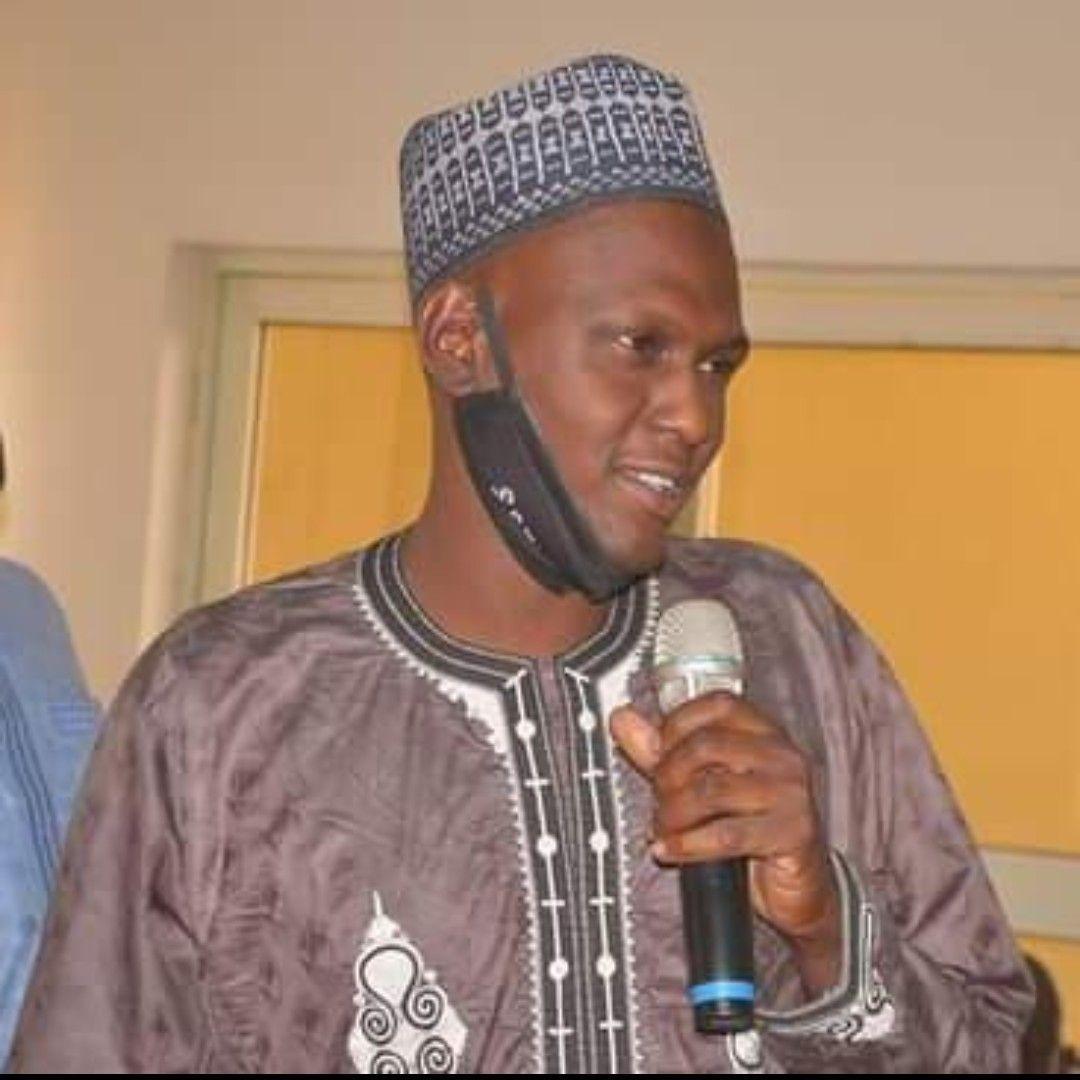
Hisham Habib Former NNPP Chairman, Kano State
Hisham Said Considering Credentials of Kwankwaso who served as Governor of the most populous State in Nigeria Kano , former Minister of Defence Special ,Emvoy of Nigeria to Southern Sudan and Senator at the 8th National Assembly ,has all it takes to be the President.
While Obi as Former Governor of one the must industrious state and a Business Man that has the technical know how to manage Nigeria.
“I am not under rating the Capacity of His Excellency Peter Obi but considering the age and Experience of Kwankwaso, Obi should consider all these to run as Kwankwaso’s Vice as he has years ahead to contest in the future election.”
For More News And Analysis About Nigeria Follow Africa-Press


